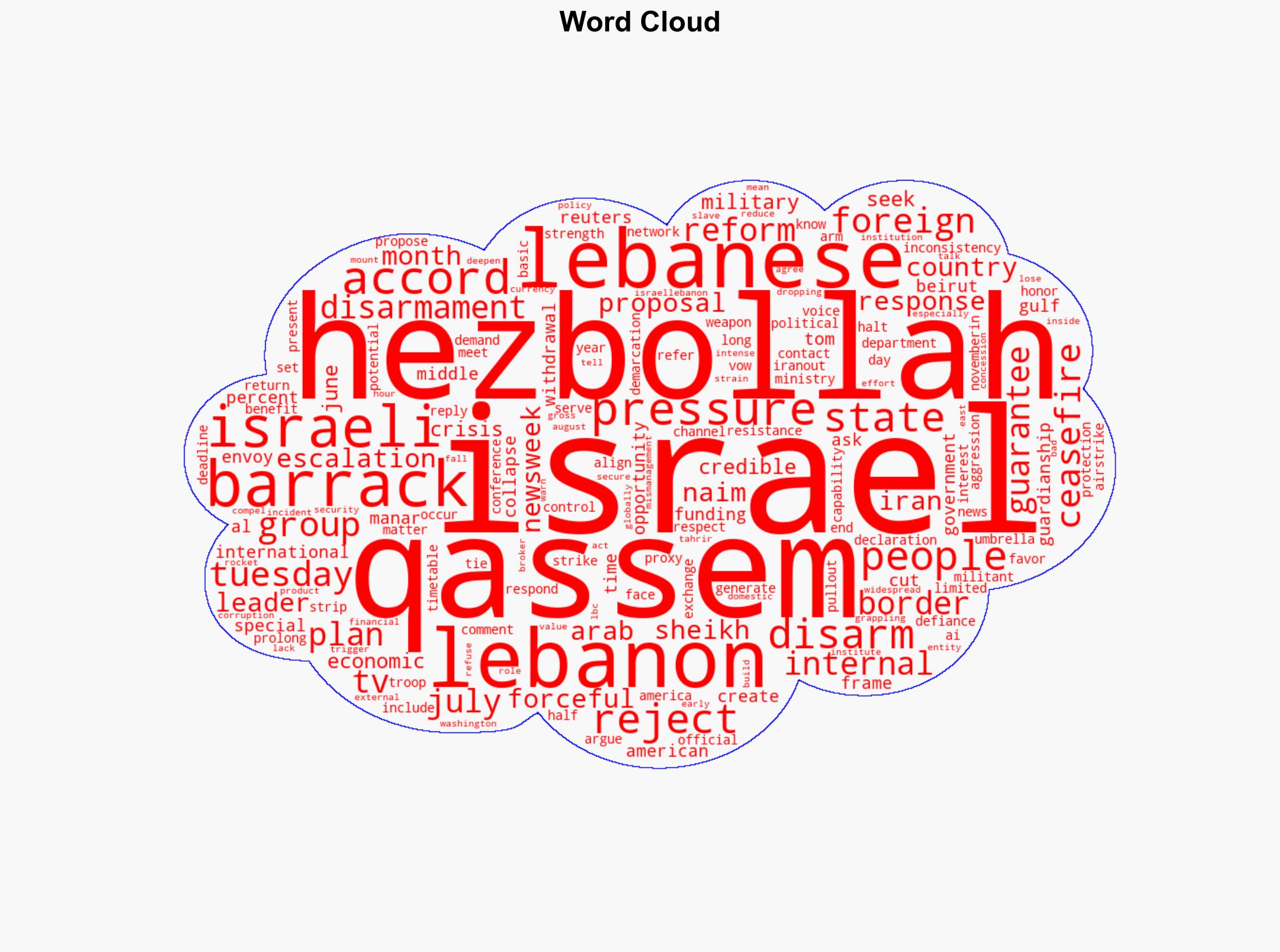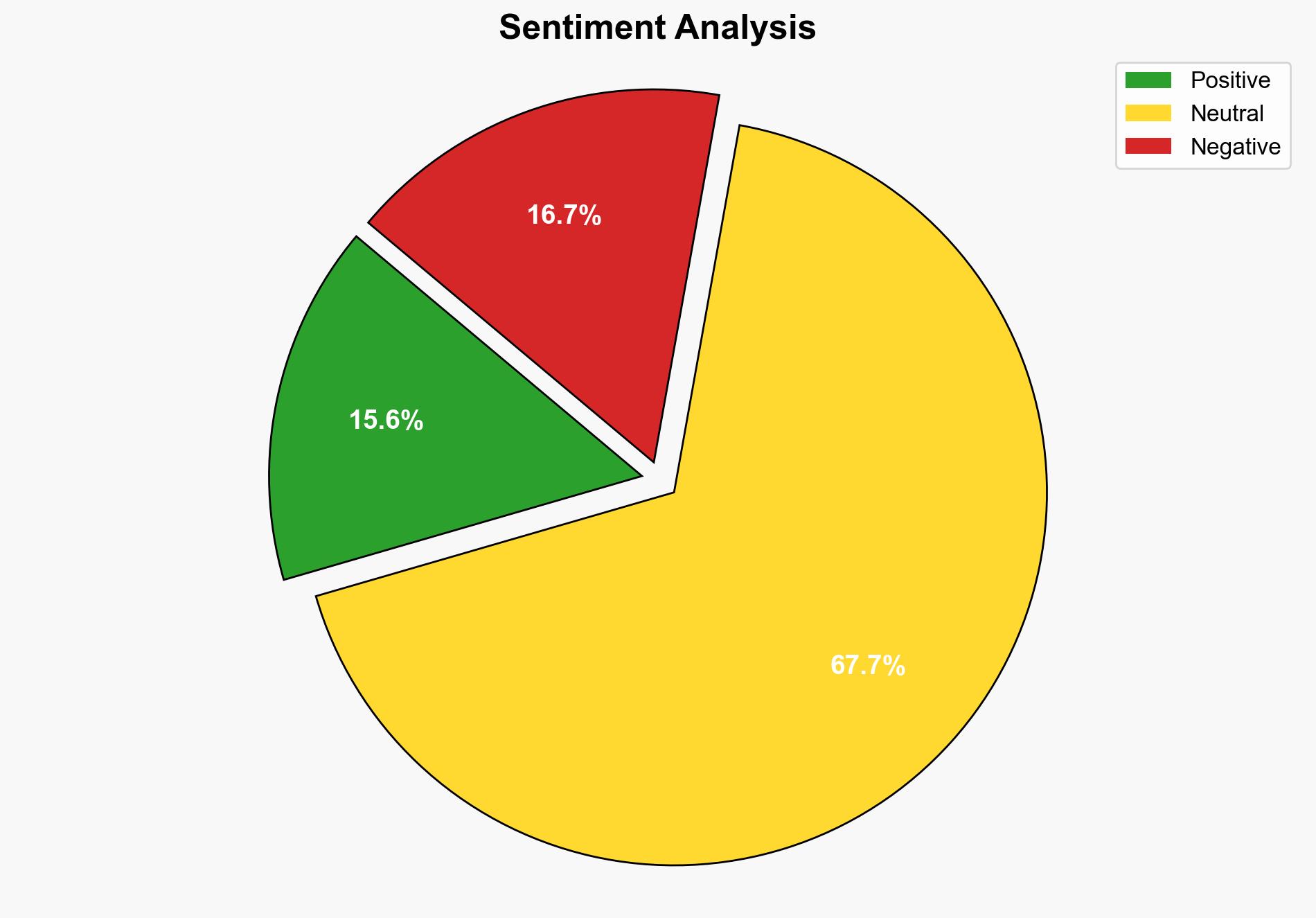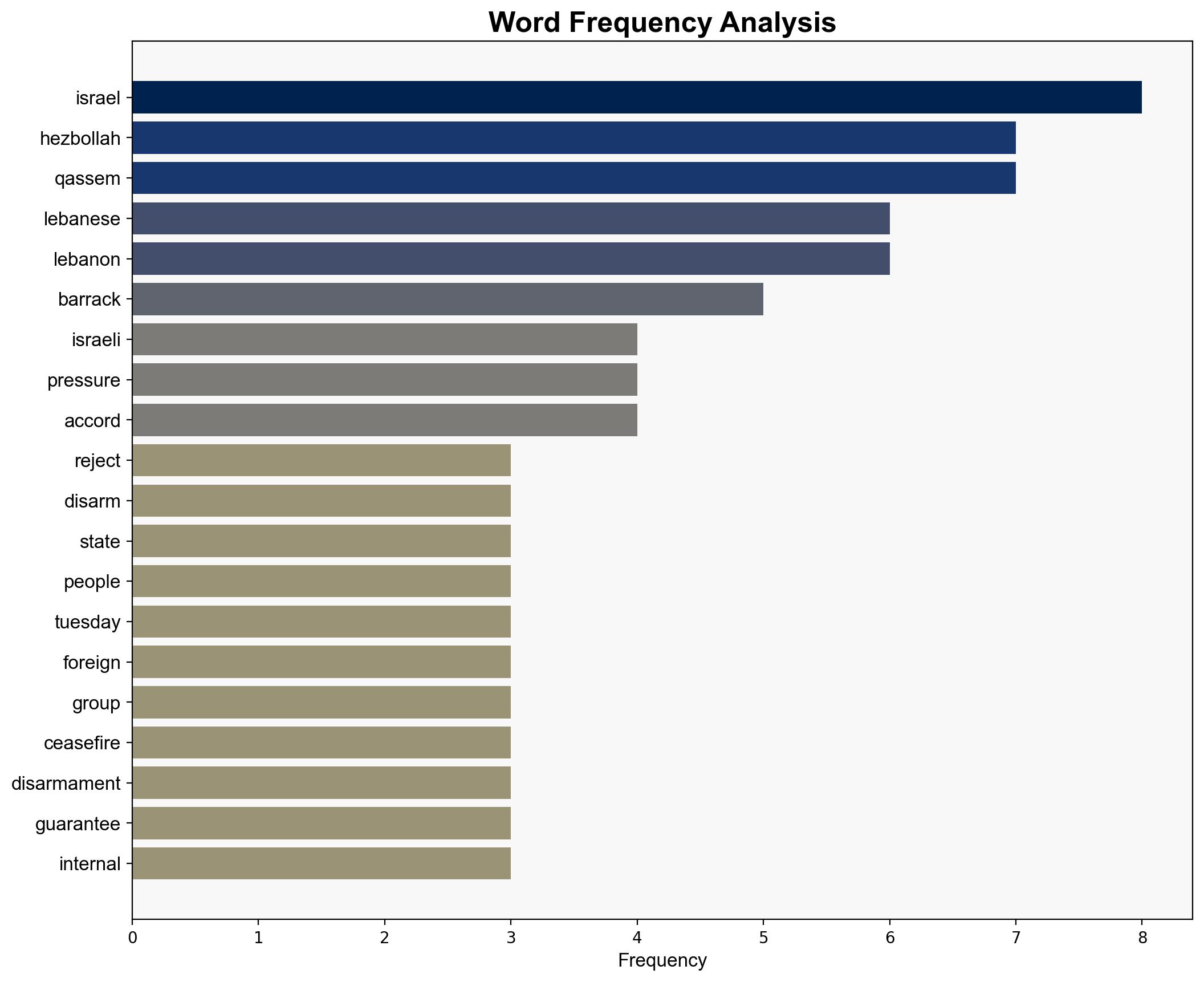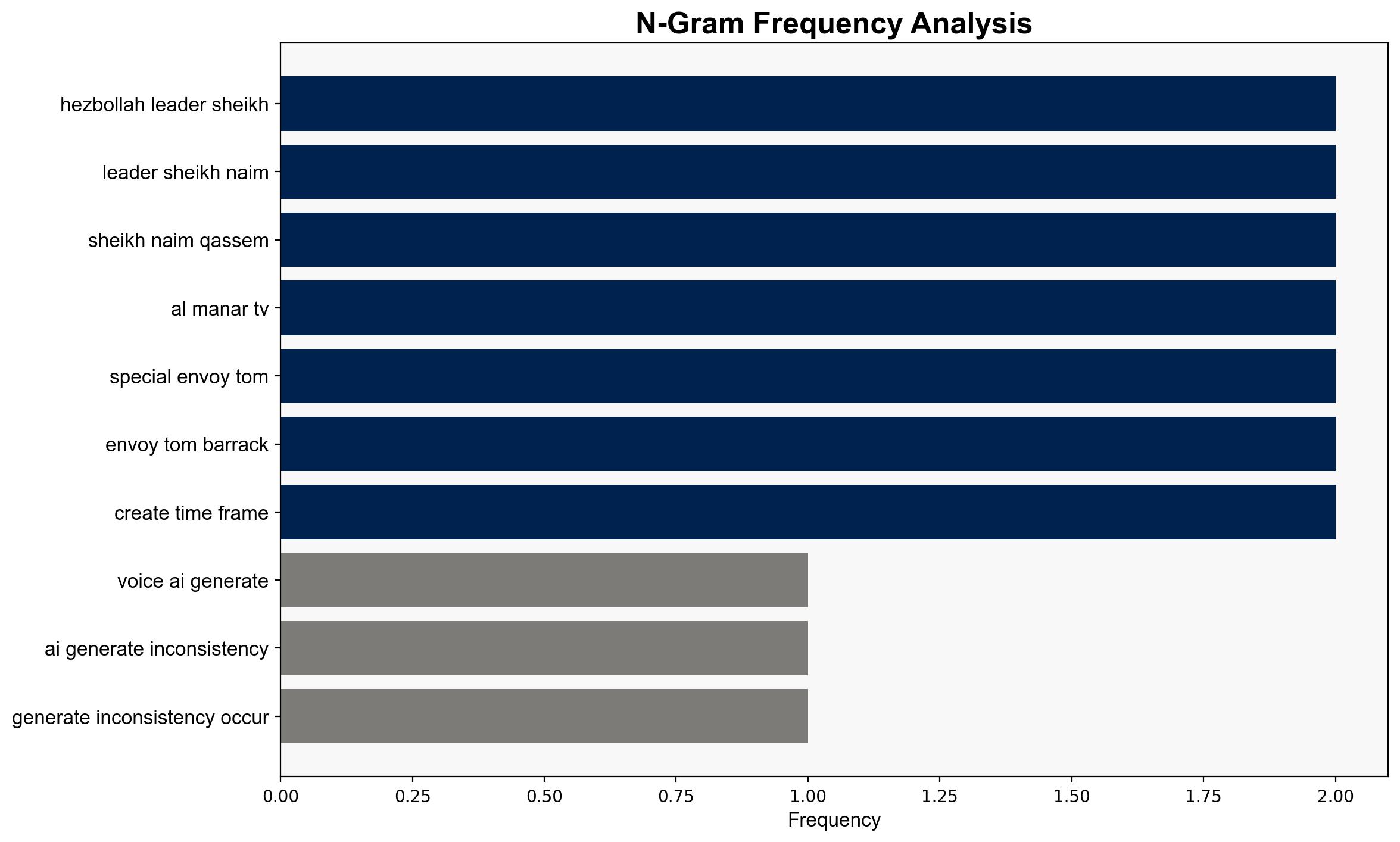Iran Ally Rebuffs US With New War Threat – Newsweek
Published on: 2025-08-06
Intelligence Report: Iran Ally Rebuffs US With New War Threat – Newsweek
1. BLUF (Bottom Line Up Front)
The most supported hypothesis is that Hezbollah’s rejection of disarmament proposals is a strategic maneuver to maintain its military capabilities and political influence amid internal and external pressures. Confidence level: Moderate. Recommended action: Increase diplomatic engagement with Lebanese stakeholders to address economic and security concerns while monitoring Hezbollah’s military activities.
2. Competing Hypotheses
1. **Hezbollah’s Rejection as a Strategic Maneuver**: Hezbollah is using its rejection of disarmament proposals to maintain its military strength and political influence, leveraging its position against both internal economic pressures and external diplomatic efforts.
2. **Hezbollah’s Rejection as a Genuine Security Concern**: Hezbollah’s refusal to disarm is primarily motivated by genuine security concerns, fearing that disarmament would leave Lebanon vulnerable to Israeli aggression without credible guarantees of Israeli withdrawal and ceasefire adherence.
Using the Analysis of Competing Hypotheses (ACH) 2.0, the first hypothesis is better supported due to Hezbollah’s historical pattern of leveraging military strength for political gains and the lack of credible guarantees from Israel.
3. Key Assumptions and Red Flags
– **Assumptions**: It is assumed that Hezbollah’s military capability is central to its political influence in Lebanon. Another assumption is that external pressures, such as economic sanctions, significantly impact Hezbollah’s decision-making.
– **Red Flags**: The absence of clear, enforceable guarantees from Israel raises questions about the feasibility of disarmament. Additionally, the potential for Hezbollah to exaggerate threats to justify its stance should be considered.
– **Blind Spots**: The internal dynamics within Hezbollah and its decision-making processes remain opaque, potentially obscuring the true motivations behind its actions.
4. Implications and Strategic Risks
– **Escalation Scenarios**: Continued refusal to disarm could lead to increased tensions with Israel, potentially escalating into military conflict.
– **Economic Impact**: Lebanon’s economic crisis may worsen if international aid is withheld due to Hezbollah’s stance, exacerbating internal instability.
– **Geopolitical Dimensions**: The situation could strain US-Lebanon relations and impact regional alliances, particularly with Gulf states skeptical of Hezbollah’s intentions.
5. Recommendations and Outlook
- Engage in diplomatic efforts with Lebanese government and regional allies to address security concerns and economic challenges.
- Monitor Hezbollah’s military activities and rhetoric for signs of escalation.
- Scenario Projections:
- Best: Diplomatic resolution with Hezbollah agreeing to limited disarmament in exchange for economic aid and security guarantees.
- Worst: Military conflict with Israel leading to regional instability.
- Most Likely: Continued stalemate with periodic escalations and international diplomatic interventions.
6. Key Individuals and Entities
– Sheikh Naim Qassem
– Tom Barrack
7. Thematic Tags
national security threats, regional focus, geopolitical strategy, military dynamics





